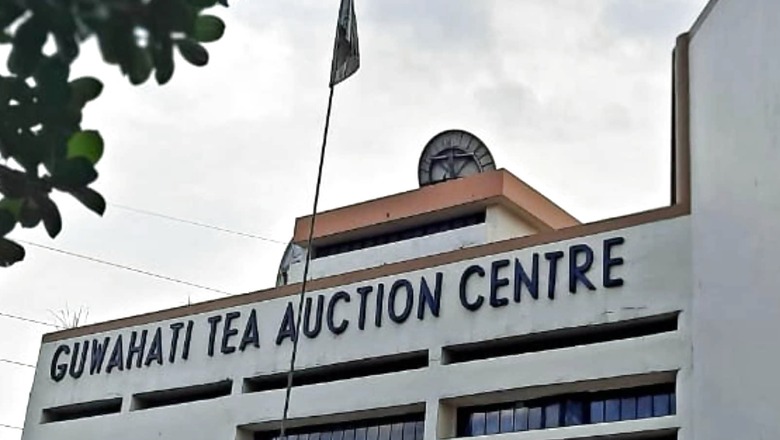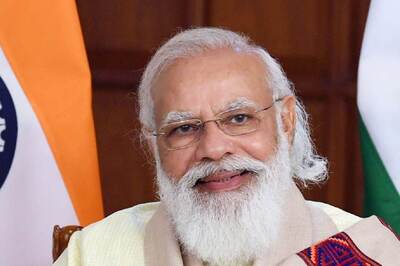
views
All that glitters are not gold and the crimson orange tea that kick-starts your morning might not be the Assam tea you think it is. Tea producers and planters of Assam have expressed their concern on the unethical trade of illegally imported Nepal tea being traded as brand Assam tea.
After affecting the sale of the geographical indication (GI) tagged Darjeeling Orthodox tea, illegal entry of Nepal CTC (cut-tear and crush) into Assam market has jeopardized the prospects of the Assam tea in local and international market.
According to the WTO agreement on Trade-Related Aspects of Intellectual Property Rights (TRIPS), no other teas, leave alone imported teas, can be blended with Assam (orthodox tea), Darjeeling, Kangra and Nilgiris (orthodox tea) that have GI (geographical indication) tag.
“Nepal has been producing tea in recent times and is contiguous to Darjeeling tea though separated by geographical boundaries. Tea production in Nepal is relatively new and the soil is virgin. It has impacted the Darjeeling orthodox tea which has an international GI (Geographical Indication) tag,” said Bidyananda Borkotoky, Advisor Northeast East Tea Association (NETA).
Borkotoky said Ilam in Nepal along the Indo-Nepal border in north Bengal is a major tea-producing area. “As India and Nepal are good neighbour and has a free trade agreement (FTA), tea from Nepal officially and illegally enters Siliguri in north Bengal and then finds its way into Assam.”
“The tea board has recovered Nepal tea from a tea factory in Golaghat of Upper Assam recently. The samples have been sent for further testing,” Borkotoky added.
As per records provided by the Panitanki Land Customs Station in Nepal, 67,05 million kilograms of Nepal tea has been imported from the neighbouring country from 2014 to October 2020. Six number of samples have been tested in the laboratory in between 2018 to 2020.
“Assam produces 700 million kilogram of tea annually. There is a surplus of 100 million kilogram of tea per year. The invasion of tea from Nepal has made the demand and supply more topsy-turvy. Moreover, the landing cost of Nepal CTC tea is somewhere between 80 to 100 rupees a kilogram and that of orthodox tea ranges between rupees 200 to 300 per kilogram, whereas the landing price of Assam CTC is around rupees 180 per kilogram,” Borkotoky said.
He further explained that Assam tea is passing through a rough phase where green leaf that fetched 40 rupees per kilogram last year is sold for a meagre 18 rupees this year. “More than 50% of tea produced this year in lying unsold in the warehouses this year,” added the advisor to the NETA.
Assam has around 800 big tea estates and over 1.5 lakhs small tea growers. More than 20 lakh workers are engaged in these tea gardens directly or indirectly.
“Government needs to check this unethical practices where Nepal tea is re-exported as Assam tea. Even 10 million kilogram of Nepal tea entering into Assam market is enough to jeopardize the economy of Assam tea industry,” added Borkotoky.
Rubbing slat to the sores of the ailing Assam tea industry, more the 50% of Assam tea produced during April-May period have been rejected by the packaging buyers and exporters owing to high residual limit found in these tea. As per these buyers these teas failed conformity as per the Food Safety & Standards Authority of India (FSSAI).
Borkotoky, however, says that the residual limit standards set by the FSSAI are unachievable. “We have received endless calls from the buyers complaining the failure of the tea to meet the FSSAI grades. We had a meeting with the Director of Tea Research Association at Jorhat, Dr Anup Kumar Baruah who is an expert on this. We got to know that the Maximum Residual Limit of the FSSAI are unachievable.”
“On the August 21, 2020 the FSSAI has made a draft notification in which the ranges were relaxed. For example, the MRL for Quinalphos an insecticide is 0.01 milligram per kg which has been increased to 0.07 milligram per kilogram in the draft. Due to pandemic the final notification is yet to be released,” he explained.
“We appeal to Chief Minister Himanta Biswa Sarma to take up the issue with the Government of India and get the final notification published,” said Borkotoky.
According to FSSAI norms it is mandatory to test the tea in FSSAI-accredited laboratory twice a year.
Federation of All India Tea Traders Association (FAITTA), the apex trade body of the packet tea players which includes Tata Global Beverages, HUL and others, tested teas at an independent firm, Eurofins Analytical Services India. Eurofins has indicated that the chemical content is higher than the maximum residue levels and does not conform to the FSSAI standard.
Read all the Latest India News here



















Comments
0 comment